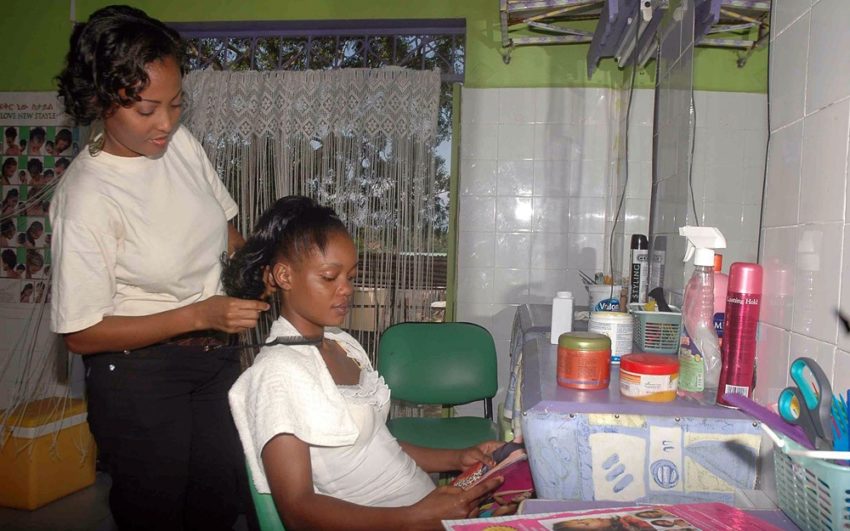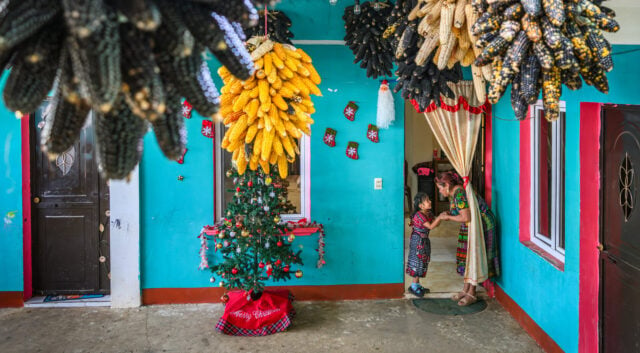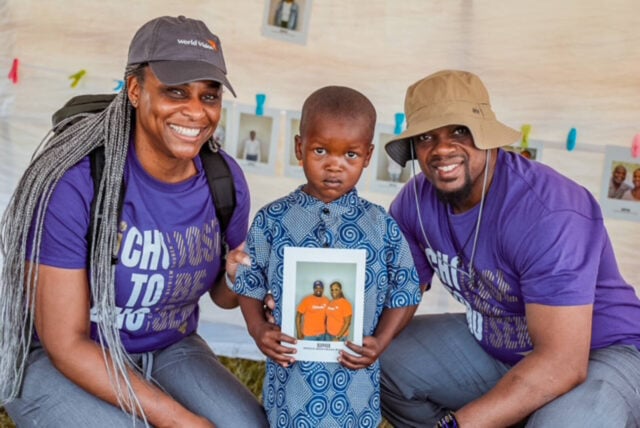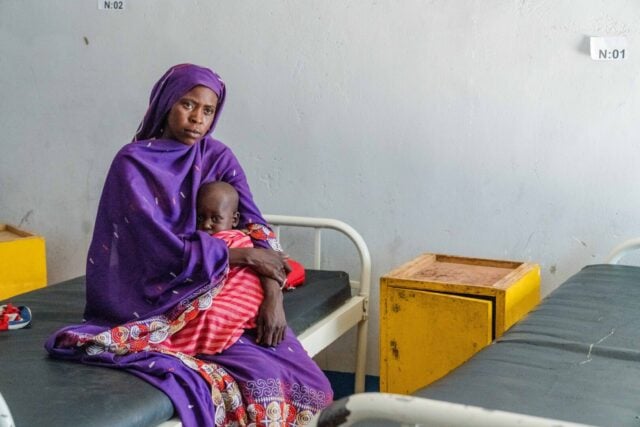With her beautifully coiffed hair, perfect makeup, and cheerful smile, Dishani Paul is perhaps the best possible advertisement for the Dishani Hair and Beauty Salon, which she owns and operates in Mombasa, Kenya.
Good presentation has always meant a lot to Dishani. One of her most painful memories of growing up poor was being forced to scavenge for discarded toothpaste tubes so she could clean her teeth. But today she expresses no resentment for those times. “Gold has to go through fire for it to shine and become valuable,” she says.
Dishani, now 32, grew up in Ngao, a tiny village in an arid region where inhabitants mostly survive by subsistence farming. Dishani lived with her mother and seven siblings in a two-room mud hut.
Her father died before she was born, and Dishani’s mother earned about $17 a month as a schoolhouse mother. Beyond that, the family relied on the maize and bananas they grew on their small plot of land.
Most families in Dishani’s community had no money to put their daughters through school and so sought child marriages for them — a prospect that horrified Dishani. “I remember telling my mom never to accept a dowry from anyone in my village,” she says, “until I had finished secondary school.”
She got her wish when Dishani’s mother signed her up to become a World Vision sponsored child. Dishani’s school fees were paid for and she got all the supplies she needed to attend high school. “My favorite thing about being a sponsored child was getting a school uniform,” Dishani says. “Before, I used to go to school in a tattered, untidy uniform full of patches of various colors.”
Dishani was further encouraged by letters from her U.S. sponsors, the Gerskovich family — particularly those from Christina Gerskovich, the daughter who was about Dishani’s age. “When I received the letters, I would read them over and over again,” Dishani says. “Christina would send me letters that had colorful stickers. I had never seen such decorations, let alone received a letter from anyone.”
The support persuaded Dishani to make good use of her schooling. She observed that many of her peers who were unable to go to school often lapsed into idleness and drunkenness. Dishani was always among the top three students in her class and held leadership roles in her final years of high school.
Afterward, Dishani worked for two years as a domestic helper to save enough money to take a nurse-aid course. She worked as a nurse aid for six years until she met the man who would become her husband, an accountant, whom she describes as a “wonderful, God-fearing man.” They have two girls: Scholastica, 15, and Thandie, 5.
Later, Dishani trained as a hair stylist and opened her own salon in 2005. Now, she enjoys a lifestyle that she could never have previously imagined. “I have a wonderful home in Mombasa,” she says. “It’s a three-bedroom stone house, and each bedroom has its own bathroom.”
But Dishani has never forgotten the humble circumstances in which she grew up. “I am happy to bless,” she says, “because I know what it means not to be privileged in life.”
She supports several orphans and uses her business to train disadvantaged youth to become hair stylists.
I am happy to bless, because I know what it means not to be privileged in life.—Dishani Paul
Joyous hearts reunite
Dishani remains forever grateful to her sponsors, the Gerskovich family. After making inquiries with World Vision, she was able to reconnect via email with Christina Johnson (nee Gerskovich), who lives in Blacksburg, Virginia. The Gerskovich family was overjoyed to hear from Dishani, and Christina hopes to one day visit Dishani in Kenya. “My family and I cannot express our happiness for all the effort that Dishani made to become the beautiful woman she is today,” she says. “It’s amazing to see what God has done.”
Christina’s father, Philip, says reconnecting with Dishani has transformed his view of sponsorship. “I always thought sponsorship was primarily for the donors’ benefit — giving them a tangible example of the benefits of their support,” he says. “What I did not realize was how the knowledge that a family was supporting them helped sponsored [children] get through hard times and feel wanted.”
May Ondeng of World Vision’s staff in Kenya contributed to this article.




